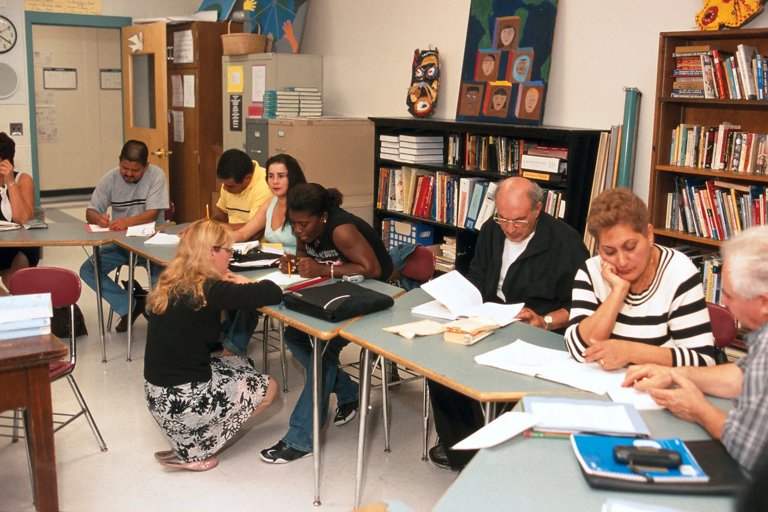Education & Learning
Adult Learning Boom: Night Classes in Devon See Unexpected Popularity
From language courses to digital skills, evening programmes are filling up quickly, reflecting a renewed appetite for lifelong learning opportunities.
2025-08-16 00:54
By Sophie Grant

Adult education providers across Devon are reporting record attendance in night classes, reflecting a renewed appetite for lifelong learning. From language lessons to digital skills workshops, evening programmes are filling faster than organisers can expand them. Many attribute the boom to a combination of economic pressures, career changes, and the desire for social engagement after the isolation of the pandemic years.
At Exeter College, courses in Spanish and French are fully booked months in advance, with waiting lists stretching well into next year. Administrators say demand is especially high among retirees and mid-career professionals eager to broaden their horizons. For some, language learning offers the prospect of more rewarding travel, while others see it as a way to stay mentally sharp.
Digital skills courses are perhaps the biggest draw. With employers placing increasing value on computer literacy, classes in coding, social media marketing, and data analysis are oversubscribed. Tutors report that students range from young adults seeking an entry point into the tech industry to older workers hoping to remain competitive in evolving job markets.
Night classes are also serving as community hubs. In towns like Barnstaple and Newton Abbot, classrooms are filled with people from varied backgrounds, fostering connections across age groups and professions. Organisers say the social aspect is as important as the education itself, helping reduce loneliness while strengthening community ties.
Employers are beginning to recognise the benefits. Several Devon-based companies now subsidise employee participation in evening courses, seeing them as a cost-effective way to upskill staff. Human resources managers note that workers who attend such programmes often return with greater confidence and improved problem-solving skills, contributing directly to workplace productivity.
Local councils are supporting the trend by offering grants to community colleges and adult learning centres. Officials see lifelong learning as a tool to stimulate the local economy, increase employability, and reduce social inequality. Some rural areas are experimenting with hybrid models, blending online and in-person classes to ensure accessibility for those living farther from urban centres.
The boom has presented challenges for providers, who are scrambling to recruit enough qualified instructors. Retired teachers are being lured back to classrooms, while younger professionals are being trained as part-time tutors. While staffing remains tight, most institutions say they are committed to expanding capacity to meet the unprecedented demand.
Student stories underline the human impact of the surge. One single mother in Plymouth said her evening coding class had opened the door to a new career path, giving her confidence to apply for jobs in the technology sector. Another retiree in Torquay described his art history class as “a second youth,” rekindling passions left dormant for decades.
Educational charities are also stepping in, providing scholarships to cover tuition costs for low-income learners. With living expenses rising, financial barriers remain a concern, but many organisations are determined to keep courses accessible. Campaigners argue that access to education should not end with compulsory schooling and that lifelong learning is essential to an adaptable society.
The pandemic’s role in shaping demand cannot be overlooked. Years of lockdowns prompted many people to reassess priorities, with personal growth and skill development moving higher on the list. Providers note that once-online-only courses have transitioned into blended formats, giving learners more flexibility and boosting participation rates.
Academics studying adult education trends suggest the Devon boom reflects a nationwide shift. Early indicators show similar patterns emerging in other regions, though Devon stands out for the sheer diversity of courses on offer. Experts predict that adult learning could soon become a cornerstone of UK education policy, alongside traditional schooling and higher education.
For now, classrooms remain lively well into the evening, with learners eager to expand their knowledge. The popularity of night classes demonstrates that education is no longer confined to youth or formal institutions. In Devon, the resurgence of adult learning is proving that curiosity and ambition can thrive at any age, enriching individuals and communities alike.